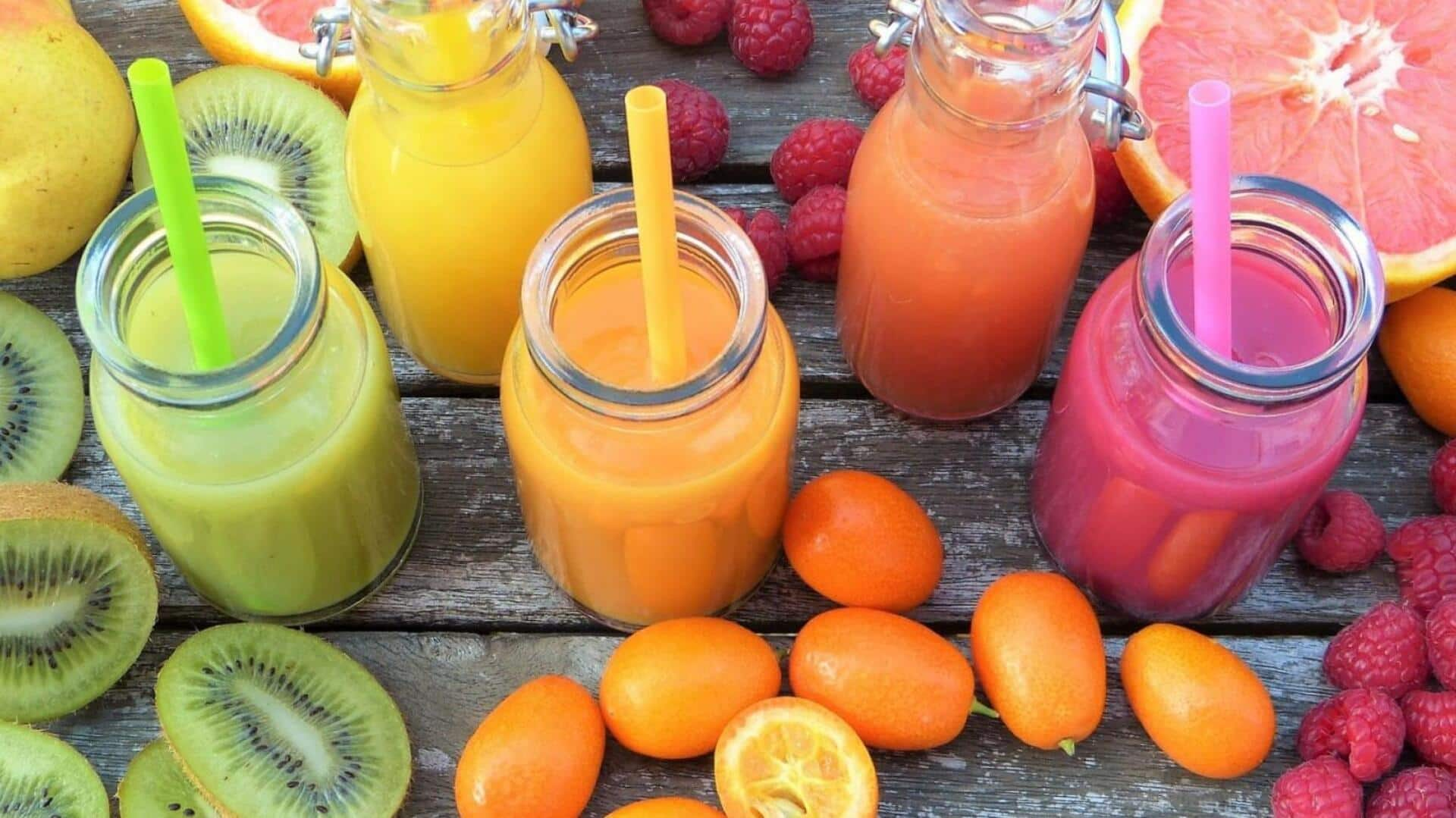
Juicing v/s whole fruits: Which is healthier?
What's the story
Juicing is all the rage for the convenience and instant nutrient hits it offers. But it often tends to skip the fiber and other important elements of whole fruits. In this article, we explore why whole fruits make a better choice for a balanced diet, uncovering some hidden truths about juicing.
Fiber importance
Fiber content matters
Whole fruits are loaded with dietary fiber, which is essential for gut health. When you juice fruits, most of the fiber is discarded in the pulp. Fiber regulates blood sugar levels and makes you feel full for longer, preventing overeating. Without this key element, juices can cause quick spikes in blood sugar levels.
Nutrient retention
Nutrient loss during juicing
Juicing can strip away essential nutrients that are light- and air-sensitive. Vitamins (like vitamin C) degrade rapidly when exposed to air while juicing. Whole fruits, with the natural skin/peel, protect these nutrients, ensuring you get the maximum nutritional benefits when they are eaten directly. This protection is critical to maintaining the fruit's integrity and nutritional value.
Sugar levels
Sugar concentration concerns
Juices are usually more concentrated with sugar than whole fruits, since you need more fruit to make a single serving of juice. This added sugar (without the balancing effect of fiber in whole fruits) can contribute to weight gain if you drink juices excessively. Without fiber, these sugars are absorbed faster, which may cause spikes in blood sugar levels.
Feeling full
Satiety and portion control
Eating whole fruits also makes you feel full because of their fiber content and water volume, which also helps in portion control while eating/snacking. Juices don't have this satiety factor, which makes it easier to drink a lot more than you think, which could easily add extra calories over time.